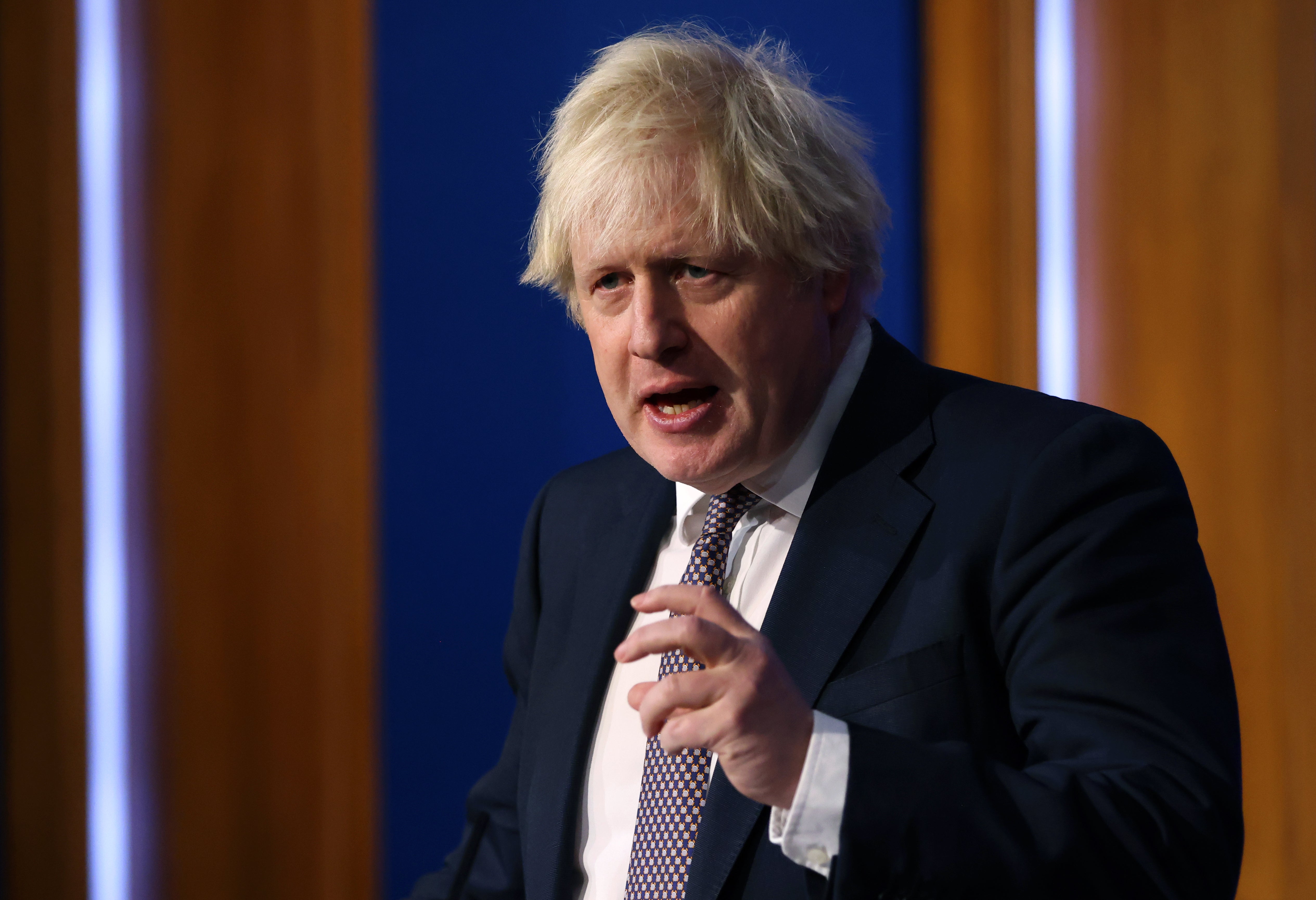Johnson pledges to smash ‘county lines’ drugs gangs
The Government’s £300 million drugs strategy commits to dismantling 2,000 crime rings over the next three years.

Your support helps us to tell the story
From reproductive rights to climate change to Big Tech, The Independent is on the ground when the story is developing. Whether it's investigating the financials of Elon Musk's pro-Trump PAC or producing our latest documentary, 'The A Word', which shines a light on the American women fighting for reproductive rights, we know how important it is to parse out the facts from the messaging.
At such a critical moment in US history, we need reporters on the ground. Your donation allows us to keep sending journalists to speak to both sides of the story.
The Independent is trusted by Americans across the entire political spectrum. And unlike many other quality news outlets, we choose not to lock Americans out of our reporting and analysis with paywalls. We believe quality journalism should be available to everyone, paid for by those who can afford it.
Your support makes all the difference.Boris Johnson is pledging to break up 2,000 “county lines” drugs gangs in a £300 million drive to rid the country’s streets of illegal narcotics.
The Government is to set out its 10-year drugs strategy for England and Wales, with a police crackdown to cut off the supply of class A drugs by city-based crime rings to the surrounding county areas.
At the same time it will include what ministers say will be the biggest increase in investment and recovery in an attempt to end the cycle of addiction and repeat offending.
The Home Office said there are 300,000 heroin and crack addicts in England who are responsible for nearly half of acquisitive crime, including burglary and robbery, while drugs drive nearly half of all homicides.
The total cost to society is put at nearly £20 billion a year.
The strategy we’re setting out will attack supply and break the county lines model
Among the measures in the strategy is an expansion of drug testing on arrest, with police encouraged to direct individuals who test positive towards treatment or other relevant interventions.
This could include attendance at drug awareness courses with criminal sanctions for those who continue to use.
Judges will be given the power to order drugs tests on offenders serving community sentences for drugs-related crimes, with the prospect of jail if they test positive.
When dealers are arrested, police will be able to seize their mobile phones and use them to send messages to their clients to discourage drug use and direct them to support.
The measure is designed to remove the feeling of anonymity when people purchase illegal drugs by making them aware the police know what is going on.
We must do more to prevent these ruthless gangs ruining lives, tearing apart communities and exploiting young people
A behaviour change campaign will be piloted on university campuses to help understand which messages work in discouraging drug misuse at an early stage.
The deterrent and preventative measures will run alongside an aggressive campaign aimed at the drugs gangs, with a commitment to dismantle over 2,000 county lines over the next three years involving thousands more arrests.
Police will carry out 6,400 “disruptions” against the activities of organised criminals, targeting the road and rail networks they use while protecting vulnerable young people exploited by the gangs to run drugs for them.
In an interview with The Sun On Sunday, Mr Johnson said it could include removing the passports and driving licences of offenders.
The paper also reported there would be extra cash for 50 local authorities with the worst drug problems, including Middlesbrough, Blackpool, Liverpool, Hull and coastal towns in the North East and Yorkshire.
In a statement ahead of the strategy launch, the Prime Minister said: “Drugs are a scourge on our society, fuelling violence on our streets which communities across the country are forced to endure.
“That’s why, to cut crime and truly level up across the country, we must step up efforts to wipe out the vile county lines gangs who are blighting our neighbourhoods, exploiting children and ruining lives.
“Backed by record investment, the strategy we’re setting out today will attack supply and break the county lines model which sees criminals profit from people’s misery. Those who break the law will have nowhere to hide.”
Home Secretary Priti Patel said police would target the “kingpins” behind the supply lines, making the streets safe for innocent citizens.
“It is clear that the drugs trade is still driving so much crime – we must do more to prevent these ruthless gangs ruining lives, tearing apart communities and exploiting young people,” she said.
For Labour, shadow home secretary Yvette Cooper said that with class A drug use up 27% since 2010 and drugs deaths at a record high, Government action was long overdue.
“More than £100 million has been cut from treatment services, and cuts to policing budgets have meant that specialist drug enforcement teams have taken a backseat, allowing gangs to grow, dealing to increase and demand to soar,” she said.
“Drug use is up, serious violence is up, anti-social behaviour is up. More and more offenders are getting away with their crimes as overall prosecutions have plummeted.
“Any action from the Government must be substantial enough to undo the damage they have caused.”